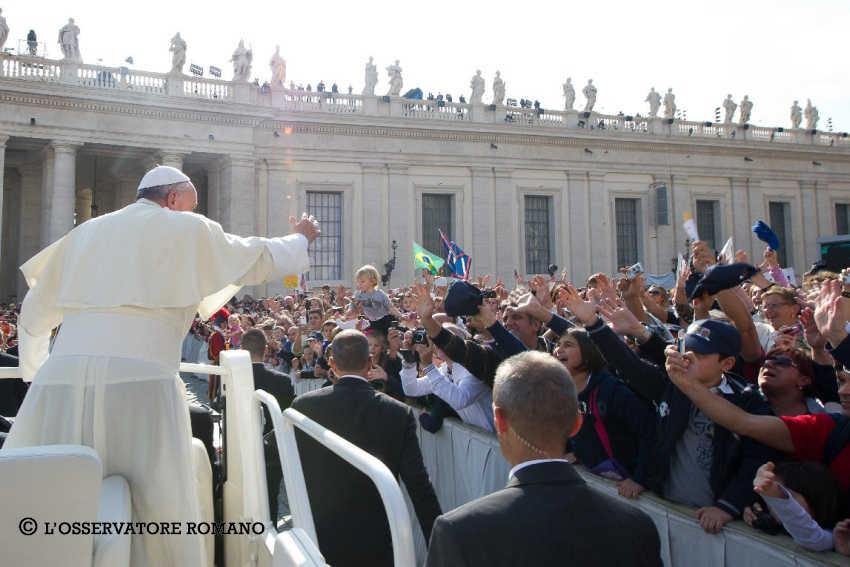22nd May 2014
The Pope’s pilgrimage to the Holy Land: bearing fruit


One of the most extraordinary aspects of Pope Francis’s pilgrimage to the Holy Land on 24-26 May is how it has started to bear fruit even before it has begun. Sadly, the lands that he will be visiting – the crucible for some of the most intractable conflicts in human history – are not known for peace, harmony and reconciliation.
The Pope is under no illusions about the realities. But his determination to be the bearer of messages of dialogue and mutual understanding – albeit through the prism of faith rather than politics – is already having real effect.
His decision to invite a Rabbi and an Imam, both personal friends, to accompany him on his pilgrimage is a powerful statement of intent. 400 US Rabbis and senior Jewish figures have written a message of welcome – to be published on 25 May in the Israeli newspaper Ha’aretz – praising Pope Francis’s determination not just to talk about dialogue, but for working to construct bridges between religions to bring peace into the world.
Similarly, Anglicans and Catholics in Britain have announced that they will unite in prayer on 25 May at the very hour that Pope Francis will visit the Christians of Bethlehem, to help highlight Pope Francis’s determination to bring different Christian communities together through his pilgrimage.
This is, as clearly stated by the Holy See, not a political visit. And yet there are, inevitably, deep political ramifications when a global leader with such immense impact calls for peace and reconciliation while visiting countries facing conflict. And despite the pessimism about the Peace Process, the Pope will not be whistling in the wind.
Jordan has worked hard to ensure harmony between Jerusalem’s Islamic and Christian institutions. Mahmoud Abbas used his 2011 UN General Assembly speech to affirm his attachment to the presence of all three religions which hold the City of Jerusalem sacred. And in a recent interview, Israel’s ambassador to the Holy See, Zion Evrony, noted that: “Spiritual religious leaders and interreligious dialogue can sometimes pave the way for a dialogue between nations; it can lower the animosity between the two sides, create more trust and build bridges to peace”. Faith can, and should, be a vector of peace as well as conflict.
Let us hope that the Pope’s presence strengthens the desire for dialogue, peace and reconciliation. The UK wants security both for Israel and for the Palestinians; justice for the Palestinians, and deserved peace for both peoples. Politics are not on the Pope’s agenda. But togetherness – through prayer, encounter and dialogue – certainly is. That’s a powerful start.
We really need peace between all the religions. This is very much significant in the world. If this religion problem is solved then all others are so minute.
My sympathies to you Mr. Ambassador this must be a difficult time for you as you are probably hoping the Pope will not say too much to upset your governments efforts to further neo-colonial influence in the region. By the way unlike the previous contributor I am not fake :-).
In the name of our lord welcome our Pope Francis to the holy land,continue Divine’s bliss to all on the visit,respect,Oyekunle Ajayi.
Our Pope Francis’s continue intercession on our world’s behalf to the holy land shall bring to us,our IHS’s plan of a peaceful land of both the Jewish State of lsrael and the PA,land,in the name of IHS,Amen,respect to all,regards,Oyekunle Ajayi.